Are you considering seeking legal advice but unsure where to begin? Navigating the legal landscape can feel overwhelming, whether it's for personal or business matters. A well-crafted letter requesting a legal consultation can be your first step toward clarity and support. Let's explore how to effectively structure your request and what details to includeâread on to find the perfect template for your needs!

Clear purpose statement
Seeking legal consultation can clarify complex situations and guide individuals through legal intricacies. Specific issues such as contract disputes, family law matters, and criminal defense require tailored legal advice. An initial consultation offers an opportunity to understand legal rights and options available under law. Experienced attorneys utilize this meeting to assess cases thoroughly and provide strategic recommendations based on jurisdictional laws. Understanding these factors enhances the effectiveness of legal representation and ensures informed decision-making.
Relevant case details
When seeking legal service consultation, providing relevant case details is essential for accurate assessment. The nature of the case, whether criminal, civil, or family law, will dictate the lawyer's expertise required. Dates are crucial, including incident dates or filing deadlines, ensuring timely intervention. Location matters significantly; jurisdictional regulations vary by state, such as California's unique community property laws in divorce cases. Additionally, parties involved should be clearly identified, including plaintiff and defendant names, as well as their legal representation, if applicable. Any documentation, like contracts, police reports, or previous court orders, enriches context, aiding the legal professional in understanding your situation comprehensively. Finally, note specific questions or concerns needing clarification during the consultation to streamline the process.
Client's contact information
A legal service consultation request often includes critical contact information to ensure accurate communication and efficient service delivery. Essential details encompass the client's full name, typically presented as "John Doe," followed by a dedicated email address (e.g., johndoe@email.com) and a direct phone number (e.g., +1-234-567-8901). Including the physical address (e.g., 123 Main Street, Anytown, USA, ZIP 12345) allows for personalized correspondence and may expedite service delivery. It's beneficial to note any preferred times for contact, such as weekdays from 9 AM to 5 PM, ensuring prompt and effective communication regarding legal matters.
Preferred consultation dates and times
Businesses often seek legal services to navigate complexities of regulations and contracts. Scheduling a consultation with a law firm, such as Smith & Associates, requires clear communication of preferred dates and times. For instance, availability could include weekdays, specifically Tuesday and Thursday afternoons between 2 PM and 5 PM, allowing ample time for discussion of issues like intellectual property or labor law. Clear communication ensures legal experts can prepare adequately for client inquiries, which might pertain to specific cases or ongoing litigations. This initial step sets the foundation for effective legal representation and client-lawyer relationship building.
Expression of willingness to comply with legal fees
Seeking legal service consultation demonstrates a serious commitment to navigating complex legal issues. Clients should express willingness to comply with legal fees associated with services, encompassing hourly rates, retainer fees, and potential additional costs such as court filings or administrative expenses. Transparent communication about financial expectations fosters a professional relationship between the client and the attorney, ensuring clarity regarding billing practices. Clients are encouraged to discuss specific payment structures during initial consultations to avoid misunderstandings. Legal fees can vary significantly based on the type of case, geographical location, and the attorney's experience, thus understanding these elements can assist clients in making informed decisions.

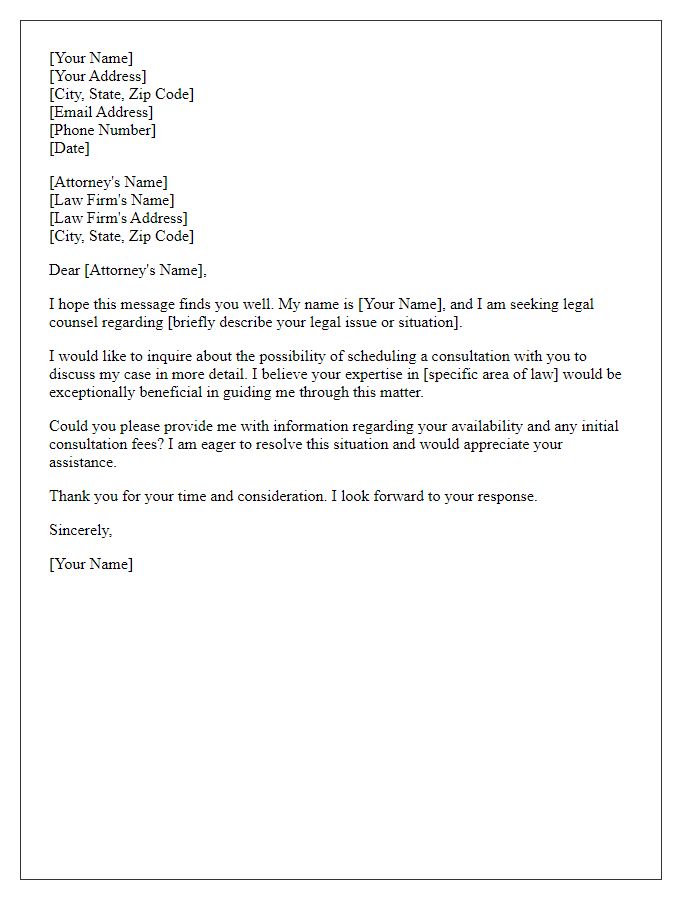
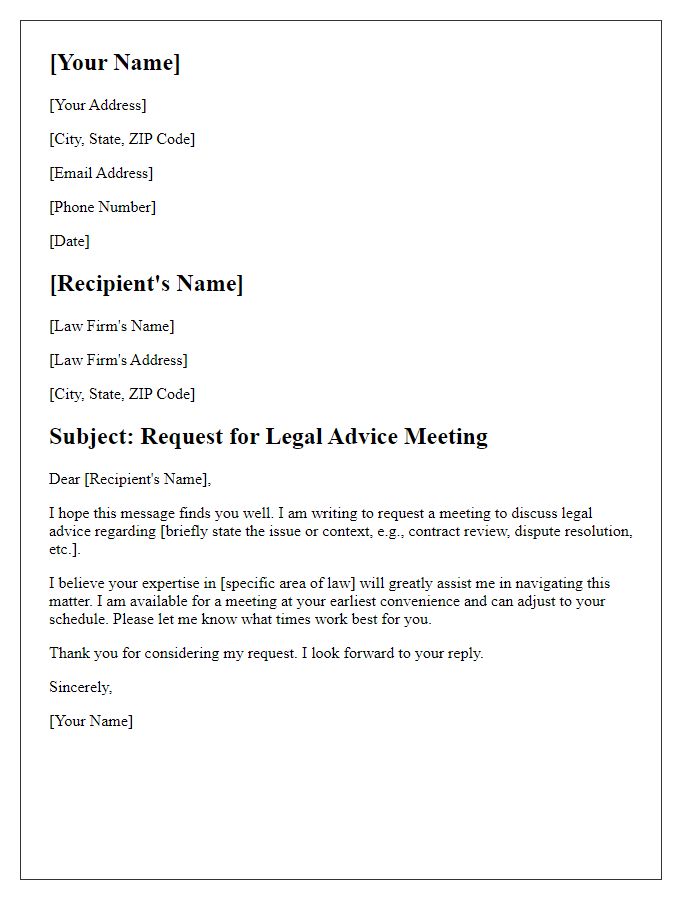
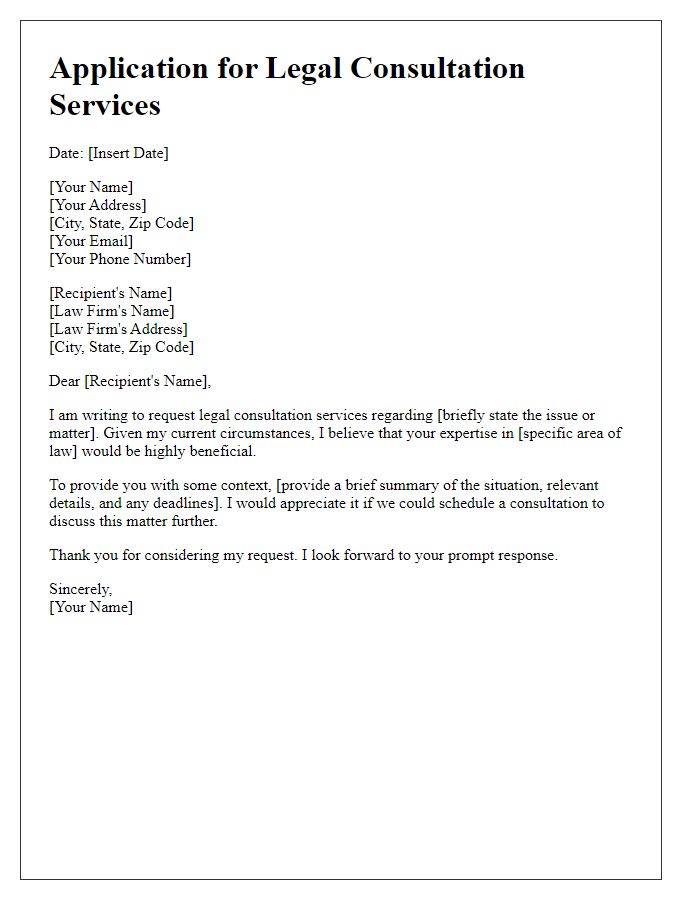
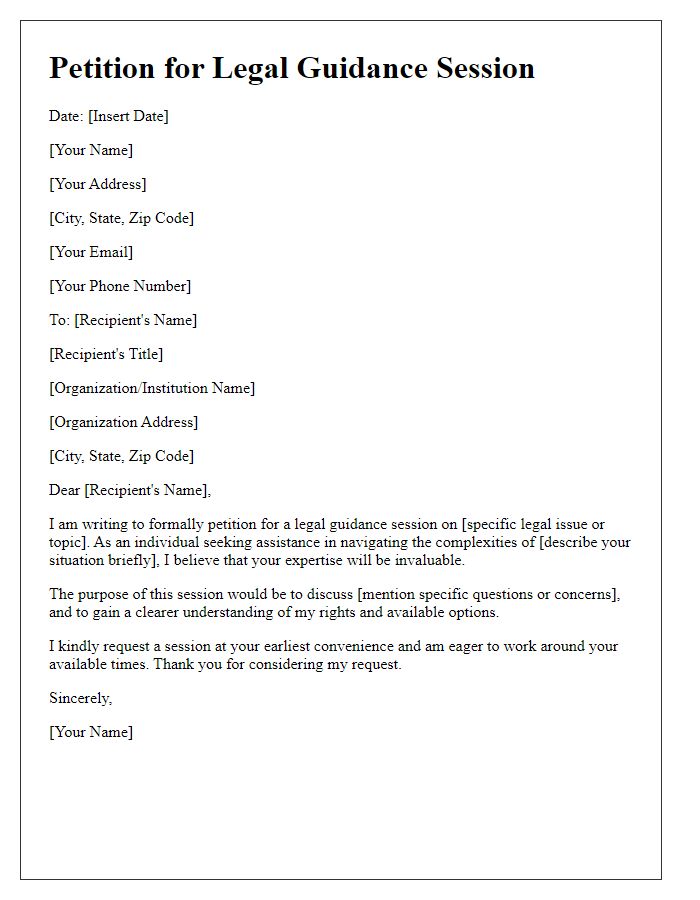
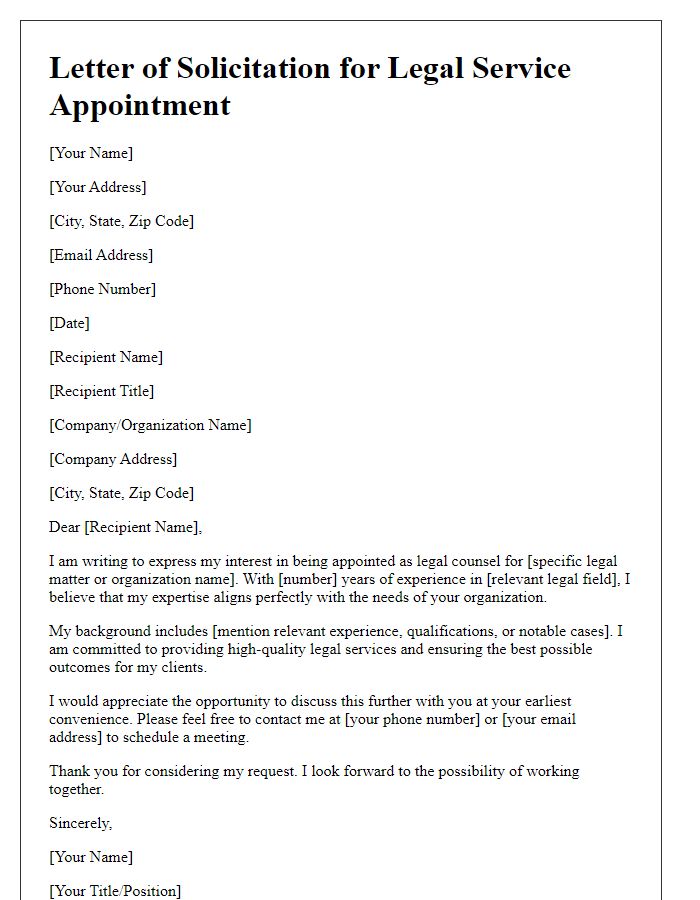
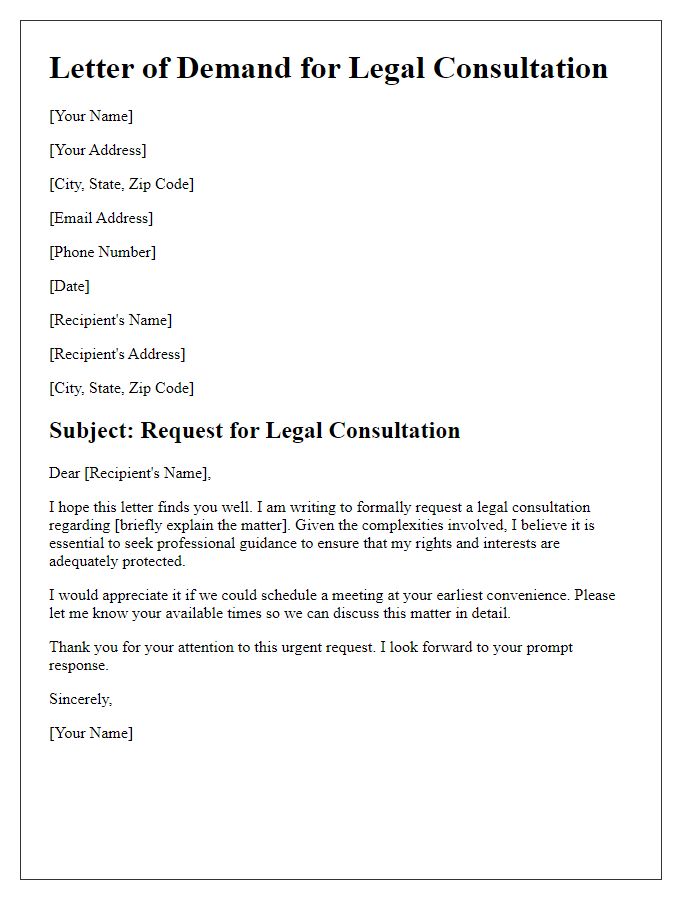
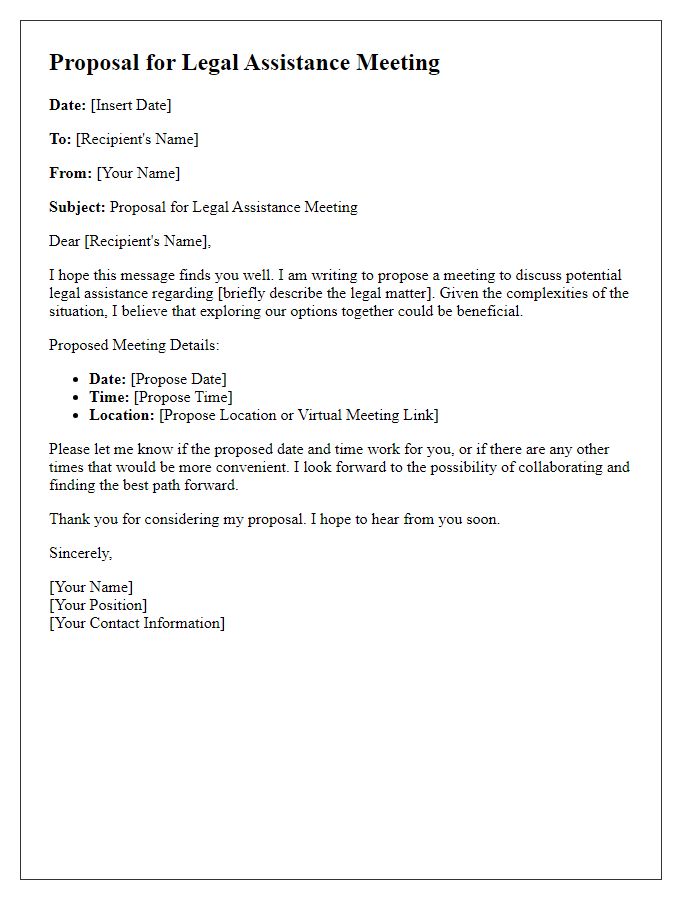
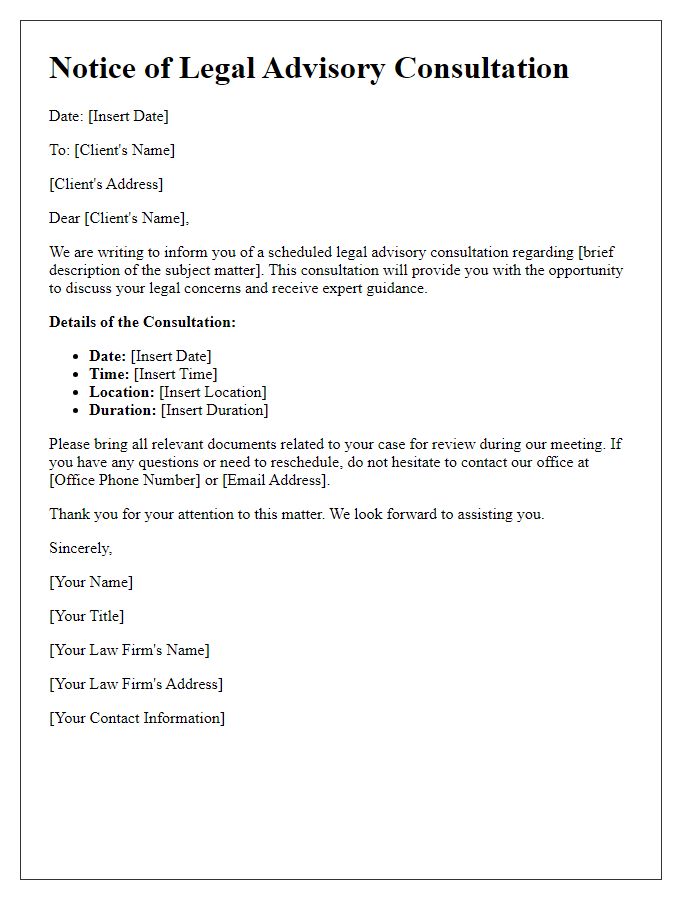
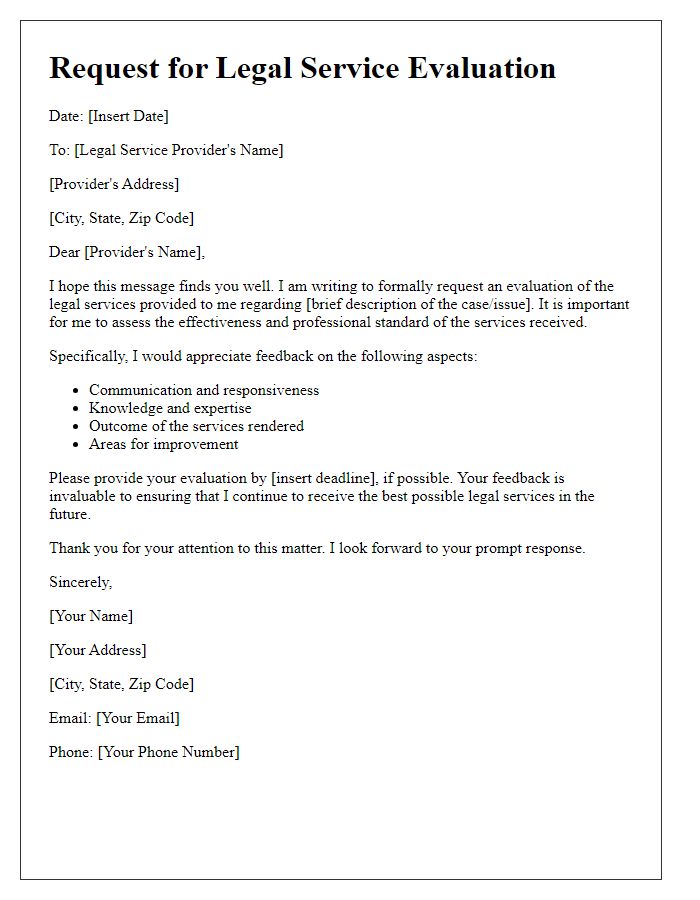
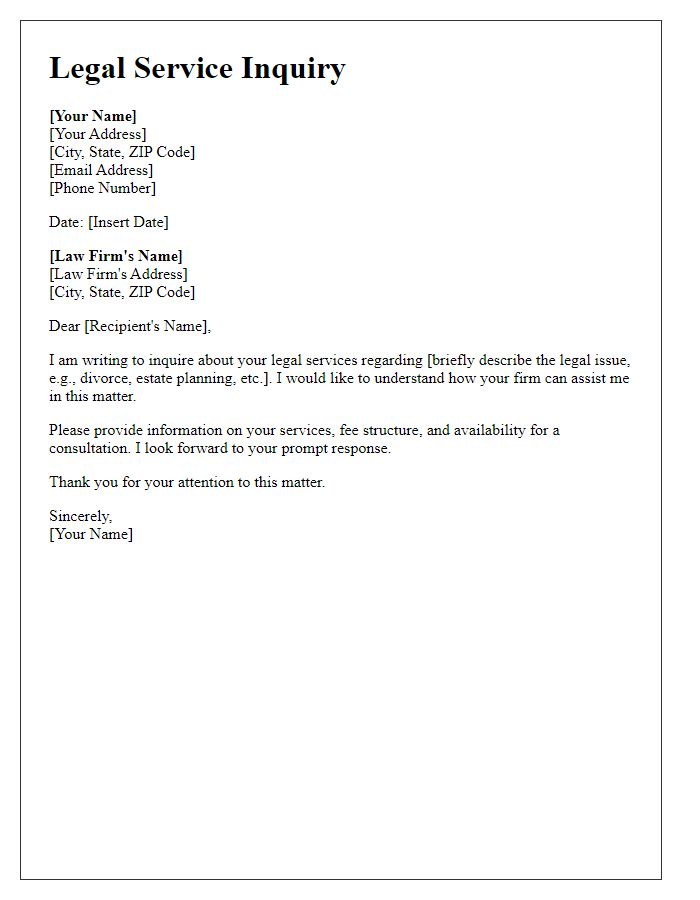


Comments